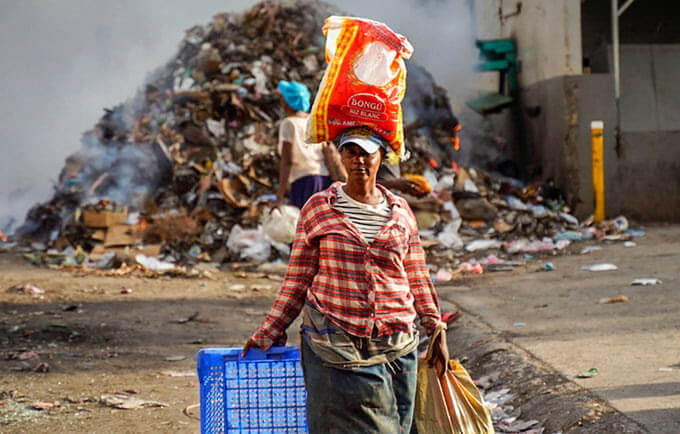“We are living with death on a daily basis”: Humanitarian crisis escalates in Haiti

PORT-AU-PRINCE, HAITI: “When I left the house, I left it without any hope of coming back. I saw so many awful things I never thought I would see. We were afraid for our lives…. We are living with death on a daily basis.”
These are the experiences and feelings that Annie shared with us. She is one of the 362,000 people who have been internally displaced across Haiti — 15,000 of which have been displaced since February 29th of this year. In the last few weeks, gang violence has gone from bad to worse in Haiti’s capital city of Port-au-Prince, escalating a humanitarian crisis that has put women and girls at the most risk.
Right now, 80% of the nation’s capital, which is home to 3 million people, is under control by armed gangs. These gangs have control of Haiti’s major ports and many of its water facilities, severely limiting access to basic necessities like food and water and increasing prices that were already high from inflation.
Around 5.5 million people — nearly half of the country’s population — are in need of humanitarian assistance. As displaced people continue to flee the scene of violence, new locations in Haiti will experience increased strain on access to water and other basic services.
3,000 pregnant women at risk
Of the 15 health facilities that UNFPA supports in the region, just one is still functional due to targeted violence on hospitals and a widespread lack of fuel and medical supplies. The one UNFPA hospital that remains operational has been pushed far-past capacity as survivors of violence seek help.
But even if all 15 hospitals were operational, transportation to care would still be fraught with danger for the women and girls in the region. Women who live in areas held by rival gangs are being increasingly targeted for rape and sexual abuse as a tool to spread fear, discouraging them from accessing care even in dire situations.
If the violence continues in the Port-au-Prince area, UNFPA estimates that about 3,000 pregnant women will give birth without access to essential health care. Of these 3,000 women, about 500 will have obstetrical consequences that could lead to death.
“The current situation in the capital city, Port-au-Prince, is a humanitarian catastrophe for its three million inhabitants, and more specifically for women and girls,” Philippe Serge Degernier, UNFPA Representative in Haiti shares. “Almost no reproductive services are happening for women and girls right now because of the violence.”
UNFPA’s response to the crisis in Haiti
As with every crisis, woman and girls are impacted the hardest — and for that reason, we are on the ground now distributing aid to as many people as we can reach. Right now, with the help of local and international partners, we are:
– Deploying mobile teams to provide services to women and girls who have survived violence
– Providing medical supplies, such as post-rape kits, to health facilities closest to displacement sites
– Providing cash assistance to vulnerable women and girls to mitigate the risk of violence.
– Distributing enough reproductive health supplies to meet the needs of 120,000 people.
But with the crisis continuing to worsen, more support is urgently needed. If you would like to make a donation to support women and girls in crises in Haiti and around the world, here is the best link to give.